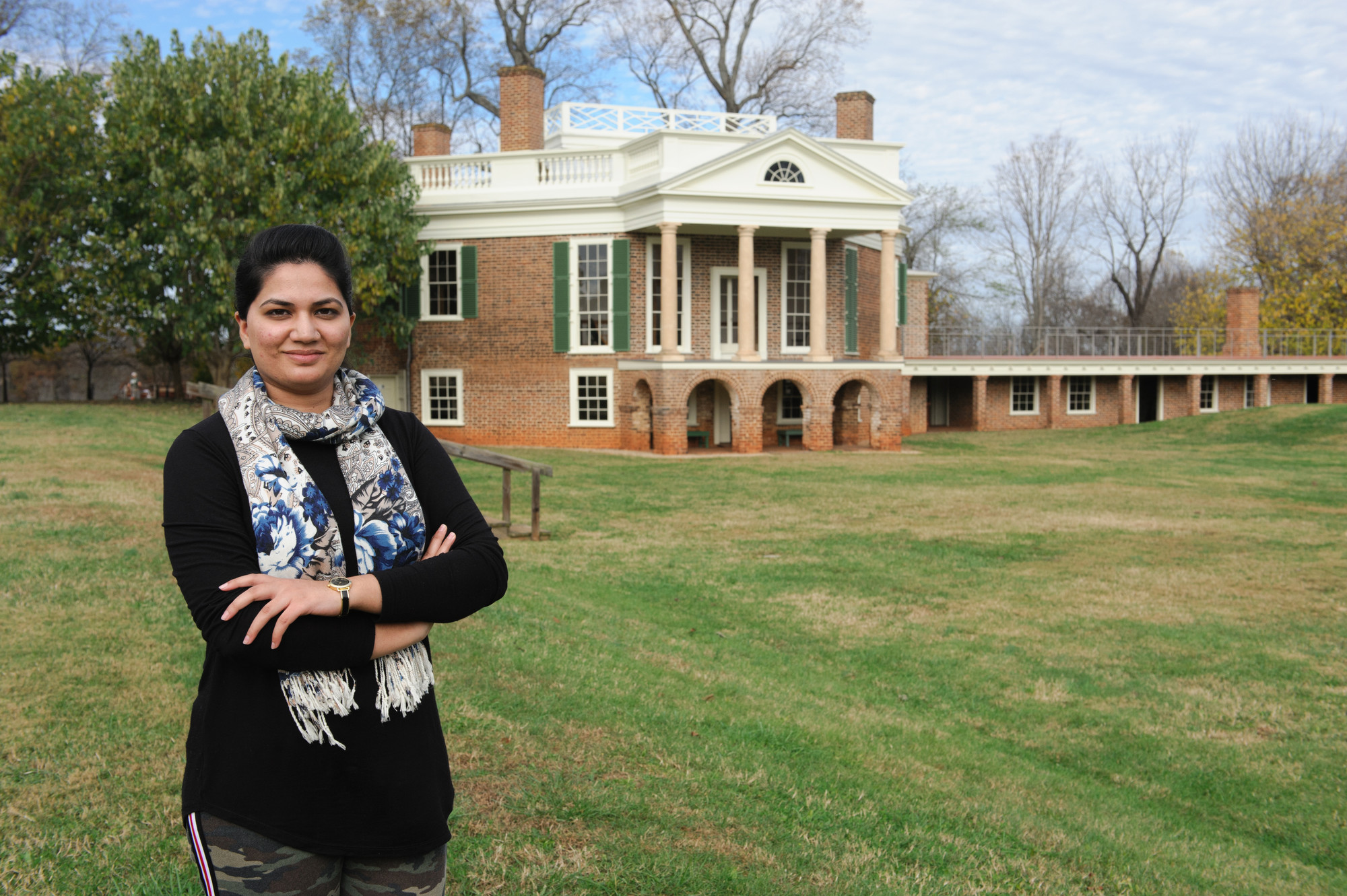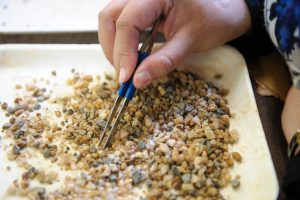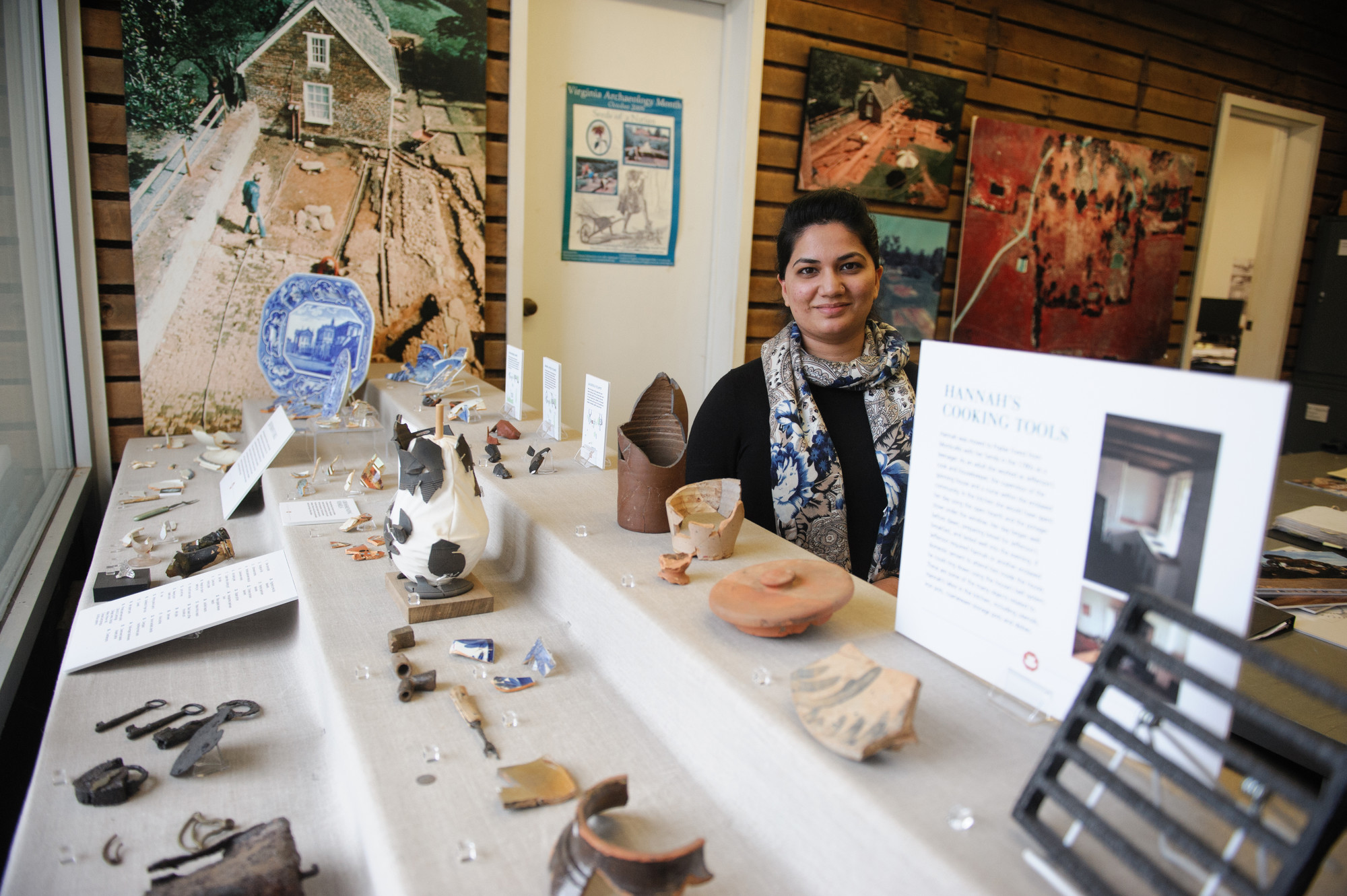When environmental science major Saba Iqbal ’19 is not in classes, she spends most of her time in an archaeology laboratory, cleaning, photographing, and filing artifacts found on the grounds of Thomas Jefferson’s Poplar Forest, the personal retreat of the third U.S. president, Thomas Jefferson.
At the entrance to the archaeology lab at Poplar Forest, where Iqbal is doing an internship, there is a sign that reads: “piecing together the past.” This is because “archaeology is about connecting you to the past,” Iqbal said.

At Poplar Forest, she pieces together the past while completing a 120-hour internship to earn credits toward her degree.
This internship opportunity teaches students “about the proper curation of archaeological relics, as well as the field techniques used in finding them,” said environmental science professor and Iqbal’s advisor, Dr. Brooke Haiar.
At her internship, Iqbal is responsible for curating, photographing, inventorying, and processing artifacts; assisting in fieldwork; and sorting samples. “This internship is about conserving museum and archaeological artifacts by using different chemicals and procedures,” Iqbal said.
Iqbal’s favorite task at her internship is sorting the artifacts found on the grounds. “When I hold the artifacts in my hands, I can understand how beautiful they are,” she said.
 Many of the artifacts found at Poplar Forest remind Iqbal of her childhood. “There are so many artifacts which remind me of my own country, Pakistan, because I have seen so many of them in my grandmother’s home,” Iqbal said. “I directly connect myself with that.”
Many of the artifacts found at Poplar Forest remind Iqbal of her childhood. “There are so many artifacts which remind me of my own country, Pakistan, because I have seen so many of them in my grandmother’s home,” Iqbal said. “I directly connect myself with that.”
One of Iqbal’s biggest tasks is assisting in the lab work that follows the Carriage Turnaround Project, which began in 2013. Archaeologists at Poplar Forest are uncovering and preserving Jefferson’s original stone driveway. The restoration is expected to be completed by 2019.
Each artifact that is discovered must go through a process of being cleaned, photographed, sorted, and given a label number. After the artifacts go through this process, they are sorted to determine if the artifact can be matched with another piece. Once an entire artifact is glued together, the team then decides if it will be displayed in the orientation room used for tours.
Many University of Lynchburg students who have had internships at Poplar Forest in the past became interested in the historic site after taking Dr. Eric Proebsting’s archaeology course. Iqbal also was drawn to this internship after taking this course with Dr. Proebsting. So, she contacted him, expressing her interest in doing archaeological work at Poplar Forest.
Dr. Proebsting, who is also Iqbal’s site supervisor at Poplar Forest, said, “Saba has grown in knowledge, experience, and confidence through the wide variety of hands-on research opportunities that have been available in the archaeology laboratory at Poplar Forest this semester.”
Iqbal agreed and said she hopes this internship will open doors for her to begin working in an archaeology lab full time after graduation. “By working at Thomas Jefferson’s Poplar Forest, I’ve polished my skills, professionally and personally,” she said.


